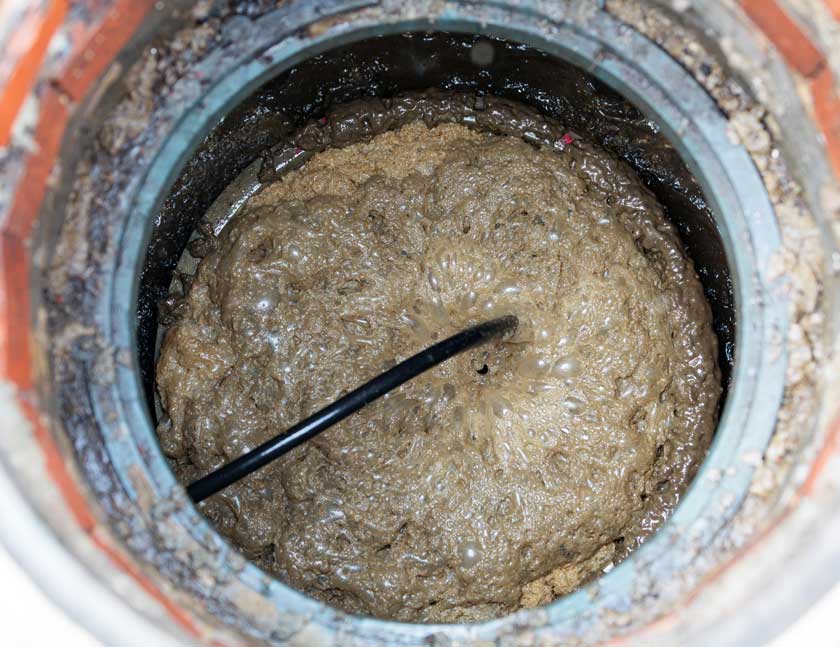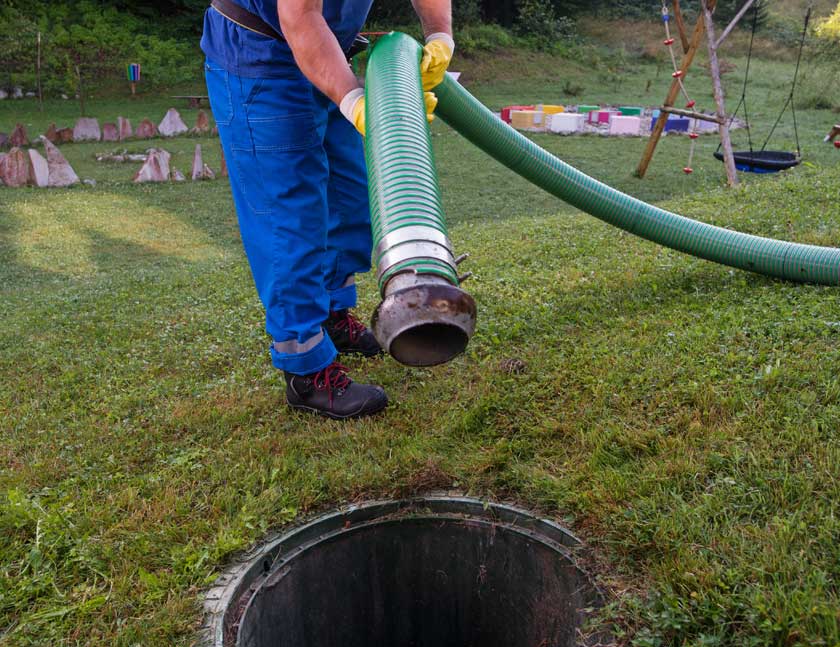
What is a Soil Stack?
1 September 2022
How Does a Cesspit Work?
1 November 2022How Often Should a Septic Tank Be Emptied?

Septic tanks are a crucial part of residential sewage systems since they collect grey water and blackwater from homes.
While not every house has a septic tank installation, there are still those off the grid that rely on one.
Hence, regular septic tank emptying is very important.
After all, a septic tank can only handle so much sewage.
Houses that need to have a septic tank include those where the municipal sewer lines are not available, such as those in rural areas.
Below we discuss some guidelines which should help you evaluate when your septic tank most likely needs emptying.
Table of Contents
What is a Septic Tank?

Image credit: Shutterstock
A septic tank is a watertight container, which is generally made from concrete, polyethylene, or fibreglass.
It’s generally buried out of sight and holds all wastewater created by a property, since it’s not connected to the central sewer system.
Hence the septic tank will handle all the wastewater that is generated from kitchens and bathrooms.
The organic waste will be separated from other matter, including grease and oil.
Then the liquid wastewater, or effluent, will generally exit from the septic tank and move on to a drainage field.
At this point it will percolate in the soil.
On the other hand, the solids and scum which were present will be filtered out of the septic tank system.
You can find out more about how septic tanks work in our other blog post.
A well maintained septic tank that’s regularly emptied can be a perfectly suitable alternative wastewater system for any type of property.
Indeed, a septic tank is an affordable option to deal with wastewater in areas with no connectivity to the sewage system.
If you’re not connected to the main sewer line, then where does sewage go? Into a septic tank.
Septic tank installation costs are reasonable, and you’ll save on wastewater bills as your property will be processing its own water independently from the public sewage system.
Moreover, septic tanks are durable, with a lifespan of at least 40 years if well maintained.
How Often Should Septic Tanks Be Emptied?
This question cannot be answered with a single correct answer.
Generally, it depends on various factors including the size of the septic tank, the people residing in the property served by it, as well as water usage.
Emptying a septic tank is of utmost importance as otherwise various problems could result.
As a general rule, 1000 gallon or smaller tanks require emptying annually.
Most septic tanks however, only need to be emptied once every three years.
There may be times when emptying needs to be done more often if the property relies on a high level of water usage.
The more people living in a particular property for instance, the more the septic tank will need to be emptied.
Should there only be one or two people living in the property, it should be enough to empty the septic tank once every five years.
Signs a Septic Tank Needs Emptying

Image credit: Shutterstock
There are a number of signs that could indicate your septic tank may need to be emptied asap.
It is therefore best to be on the lookout for any of the following telltale signs:
- The toilet is not flushing properly
- Slow drainage from sinks and showers
- You may start to hear gurgling sounds coming from the plumbing system
- Water and sewage may have started backing up into the property
- Healthy green grass growing around the septic tank indicates that water has been coming out of the system
- You start to notice foul smells near the septic tank or the drain field
- There is an overflow around the surrounding surface, or damp spots near the septic tank
Avoiding a situation where sewage starts to back up into the household drains is ideal.
If this occurs, it means you’ve waited far too long to empty your septic tank and it’s started overflowing.
When it comes to septic tanks, prevention is definitely better than cure.
A blocked septic tank is not only inconvenient and messy, but it could also result in serious problems.
This could include damage to the entire septic tank system and your home, not to mention the emptying and repair costs which could be significant.
How are Septic Tanks Emptied?

Image credit: Shutterstock
To empty a septic tank you will need to hire a liquid waste removalist.
Such a company will have the necessary equipment to carry out the emptying process quickly and safely.
These include sucker trucks, or pump-out trucks, which will essentially extract the sludge from the septic tank.
Any debris that is visible will be removed from the tank before the pumping process commences.
As soon as the pumping is completed, the pump out tanker’s hoses will be immersed in the septic tank to complete the process.
The waste will then be disposed of ethically and in accordance with local legislation.
Septic Tank Maintenance Tips
Maintaining your septic tank regularly can help you reduce longer term problems.
You should try not to overload the tank, and be as sensible as possible when it comes to water usage.
It’s crucial to avoid having any materials that could lead to clogs and blockages make their way down the toilet.
Any grease and oily residue should be disposed of elsewhere, and not down the drains.
The septic tank should also be regularly inspected.
The lids should also be closed and properly secured.
Conclusion
Rather than wait for any problems to occur, or put off repairing obvious damages, it’s highly recommended to schedule regular septic tank emptying every couple of years.
A professional septic tank or cesspit emptying specialist should always be hired to take care of this task.
This is most certainly not a DIY job by any stretch!
Apart from ensuring that it’s handled properly, a professional drainage company will give you peace of mind the liquid waste is suitably disposed of.
If your septic tank requires maintenance or regularly emptying, contact a local drainage expert for help.




